
US, India urge Taliban to uphold peace in Afghanistan, as they pledge Quad cooperation on vaccines
- US Secretary of State Antony Blinken discussed security concerns with counterpart S. Jaishankar and Indian PM Narendra Modi as China hosted a Taliban delegation
- Blinken also spoke with a representative of the Dalai Lama as Washington steps up engagement with the Tibetan refugee community, in a move likely to irk Beijing
The instability resulting from advances the Taliban has made in snatching away vast swathes of territory from the Afghan government’s control, following the withdrawal of American troops by September, has alarmed the international community.

02:25
US, India urge Taliban to uphold peace in Afghanistan, as they pledge Quad cooperation on vaccines
Washington’s top diplomat also met a representative of the Dalai Lama, the Tibetan spiritual leader, as part of a meeting with civil society groups – a move that is likely to irk Beijing. The US has in recent times rallied allies to scrutinise China on its human rights record, giving the Tibetan government in exile a boost in international support.
In the Chinese city of Tianjin, the Taliban’s leadership – led by co-founder Mullah Abdul Ghani Baradar – met with foreign minister Wang Yi to assure China that it would not allow Afghanistan to be used as a base for plotting against another country.
What message was Xi Jinping trying to send on his visit to Tibet?
However, India has been more wary of a Taliban-led Afghanistan, believing that this is likely to pose a threat to its security and strategic interests, as it may shift the balance of power in the region towards arch-rivals Pakistan and China. New Delhi has yet to openly declare that it is in direct discussions with the Taliban, though reports point to backchannel talks with the group.
Analysts said Washington was also aware of New Delhi’s unhappiness over the resulting instability in Afghanistan from the American troop withdrawal, and was assessing its impact on India-US ties.
“It is natural and inevitable that the US, which has had a robust military presence in Afghanistan for the last two decades, when it withdraws, there will be consequences,” Jaishankar said.
Said Asfandyar Mir, a postdoctoral teaching fellow at Stanford University’s Centre for International Security and Cooperation who focuses on South Asia and political violence: “The US strongly realises India is not thrilled about where things are on Afghanistan, and potentially worries about how it plays into broader US-India alignment issues, for instance on the Quad [the security grouping of the US, Japan, Australia and India].”
According to him, Wednesday’s meetings were Washington’s way of reaching out to New Delhi and assuaging its concerns. “My sense is that Secretary Blinken will try to counsel the Indian leadership on how the options for the US in Afghanistan are bad, and that while the Biden administration would prefer an outcome closer to what the Indians want, the reality is more challenging,” Mir said.
Coronavirus vaccine, China top agenda as Antony Blinken visits India
Blinken, speaking to reporters after his meeting with Jaishankar, said that strengthening the partnership with India was “one of the top priorities” of the Biden administration.
”There are few relationships in the world that are more vital than the one between the US and India,” he said. Blinken also announced US$25 million in aid to India to support its vaccination programme.
This is the third visit to India by a high-level official of the Biden administration, following visits by US Secretary of Defence Lloyd Austin and special presidential envoy on climate John Kerry in March and April, respectively.
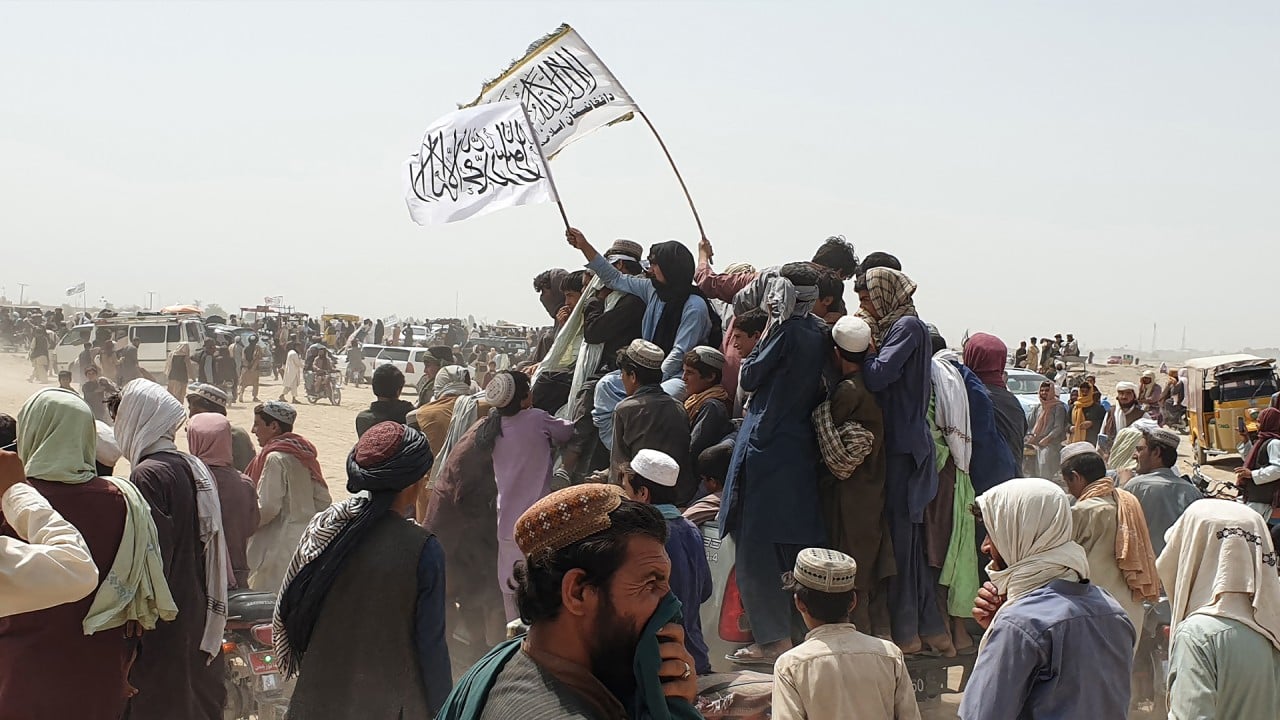
01:42
Taliban claims key border crossings in Afghanistan as US commander departs country
Blinken, speaking at a press briefing on Wednesday after a meeting and working lunch with his Indian counterpart S. Jaishankar, said both countries had a shared interest in a “peaceful and stable” Afghanistan.
“We largely see Afghanistan the same way – we are both committed to the proposition that there is no military solution to the conflict,” Blinken said. “We are not only in alignment but also working together and working with other countries, both neighbouring Afghanistan and in the region.”
Jaishankar also emphasised that the US and India were closing ranks on the issue, saying there was now “much more convergence” between the two countries, while admitting there “are some issues where we are coming from different places and different backgrounds”.
US defence secretary Lloyd Austin’s Vietnam visit to focus on maritime cooperation, distrust over wartime history
Another concern for New Delhi, according to sources in the Indian foreign ministry, was the relatively diminished role it might have if the Taliban captured Kabul and rose to power – vis-à-vis the heightened importance that might be enjoyed by Pakistan, which was seen to be backing the Taliban.
Blinken’s statements on Wednesday were seen by political insiders in New Delhi as a sign Washington would safeguard the Modi administration’s interests in the future of Afghanistan.
“As a leader and a critical partner in the region, India will continue to make vital contributions to Afghanistan’s stability, order and development,” he said.
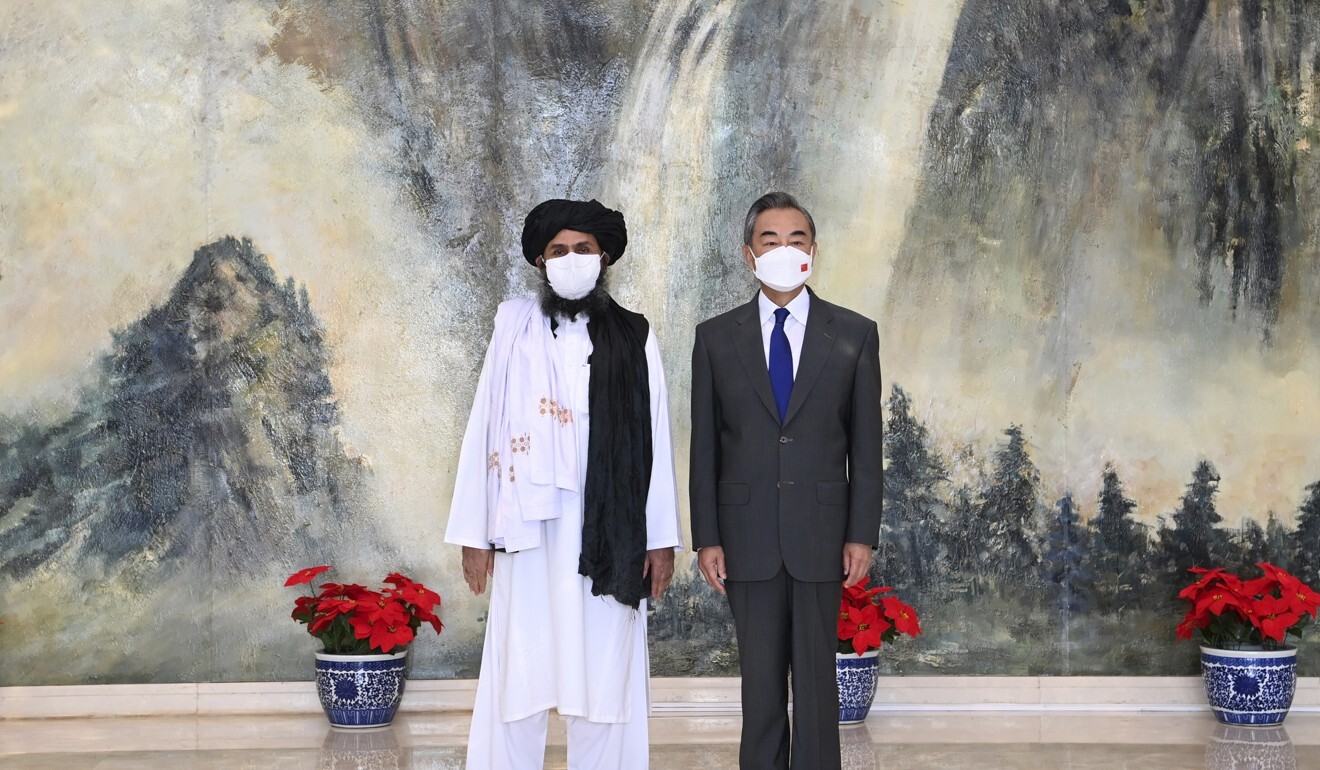
According to Harsh Pant, a professor of international relations at King’s College London, Blinken’s comments were aimed at ironing out communication between the two countries regarding Washington’s plans for Afghanistan.
“For all the convergence between the two countries, there was a feeling in India that there was a lack of coordination between what was happening on the ground and what India was being told. So India needed this clarity,” he said.
The US move earlier this month to include rival Pakistan in a new quadrilateral platform with Afghanistan and Uzbekistan to enhance regional connectivity may also have added to New Delhi’s concerns.
“There are apprehensions over what this Quad is going to be,” Pant said. “There are also enough people in India who are concerned over whether the Americans will, yet again, grow closer to Pakistan as they exit Afghanistan.”
The China factor
Amid these regional concerns, the China factor loomed large over the bilateral meetings, even featuring prominently on Blinken’s agenda.
In an unprecedented move, the top US diplomat met Ngodup Dongchung – a representative of the Tibetan government-in-exile, the Central Tibetan Administration (CTA) – who is widely seen as an emissary of the Dalai Lama, the Tibetan spiritual leader.
Blinken’s Wednesday meeting with Dongchung is the most high-profile contact the US government has had with the Tibetan political administration since 2016, when then president Barack Obama met the Dalai Lama in Washington.
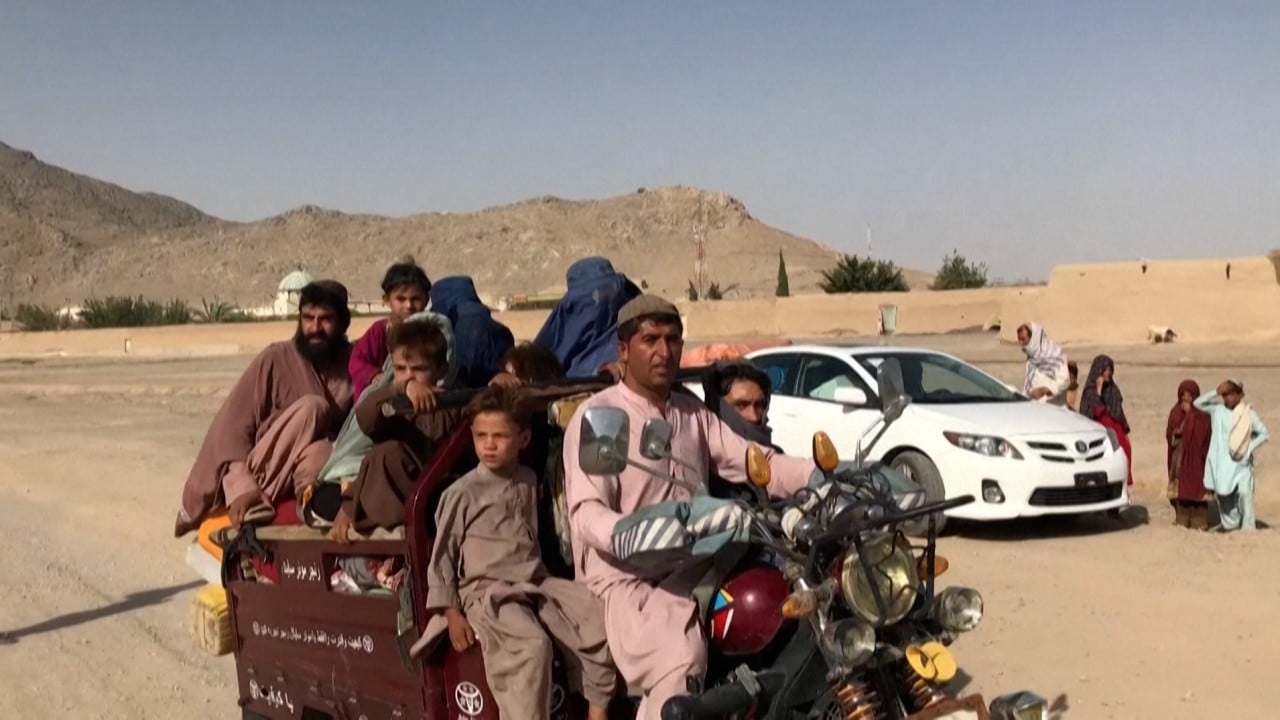
03:31
Thousands of Afghans flee as UN warns of 'unprecedented' civilian deaths from Taliban offensives
Blinken also met Geshe Dorji Damdul, director of the Tibet House, a Tibetan cultural centre set up at the request of the Dalai Lama.
These audiences are seen as a wider move by the US and India to step up engagement with the Tibetan refugee community as a way to provoke Beijing, which has previously called the Dalai Lama a “dangerous separatist”.
Chinese troops seized Tibet, now an autonomous region of China, in 1950 in what Beijing calls a “peaceful liberation”. In 1959, the Dalai Lama fled into exile in India following a failed uprising against Chinese rule.
In November last year, Lobsang Sangay, the former head of the Tibetan government in exile, was invited to the White House, the first such visit in six decades. Indian Prime Minister Modi earlier this month announced that he had called the Dalai Lama on his birthday, the first time the premier publicly acknowledged speaking to the spiritual leader since 2015.
Blinken’s visit also comes two days after his deputy Wendy Sherman met China’s foreign minister Wang and vice foreign minister Xie Feng in Tianjin. While both sides stuck to their hardline positions on divisive issues including the South China Sea, they agreed to leave room for future talks and to keep the lines of communication open.
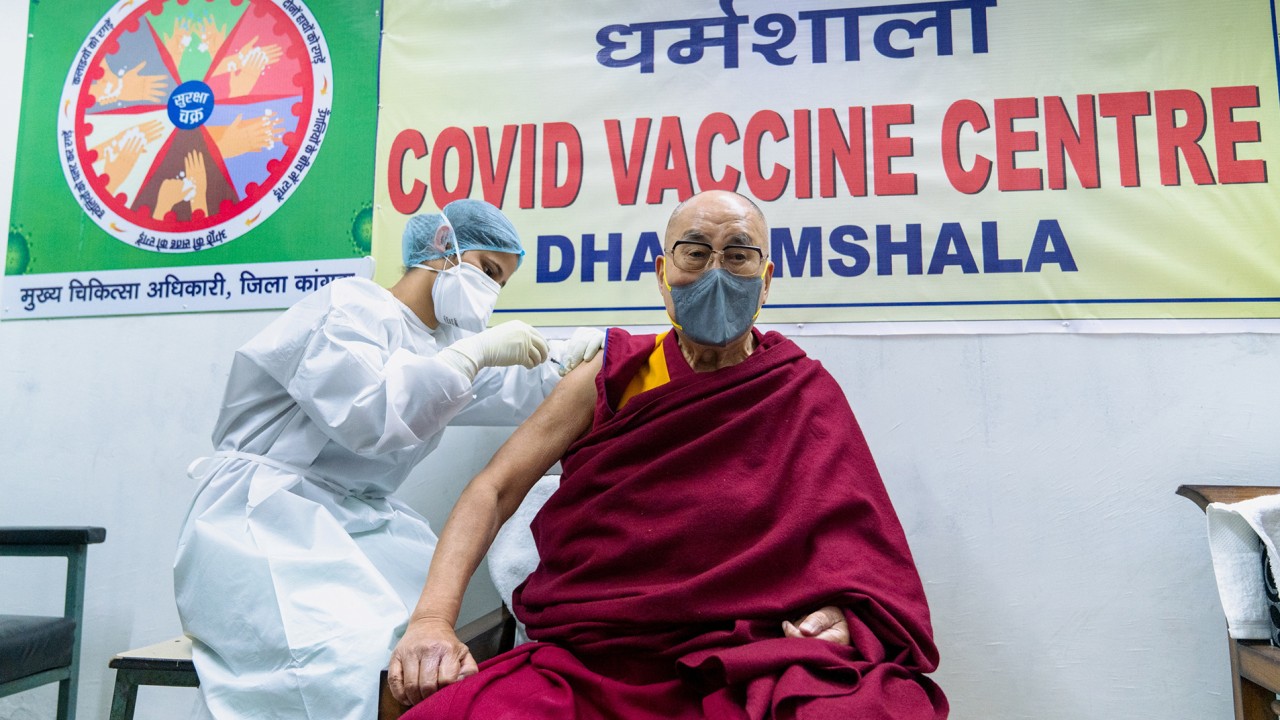
01:06
Tibetan spiritual leader Dalai Lama gets coronavirus vaccine shot
US Secretary of Defence Lloyd Austin, who is on a three-country trip to Asia this week, said in Singapore on Tuesday that he hoped to build a “constructive, stable” relationship with China and its military even amid continued and varied concerns about Beijing.
However, Austin also pushed for more partnerships with Southeast Asian countries for a “stronger, more stable regional order” in comments widely seen as taking on Beijing in its backyard.
Blinken also reinforced Washington’s ongoing initiative to rally friendly nations to work together, saying the US and India would be “global leaders in ending the pandemic”.
“The Quad was not a military alliance, its purpose is to advance cooperation on regional challenges, while reinforcing rules and values we believe in,” he added.
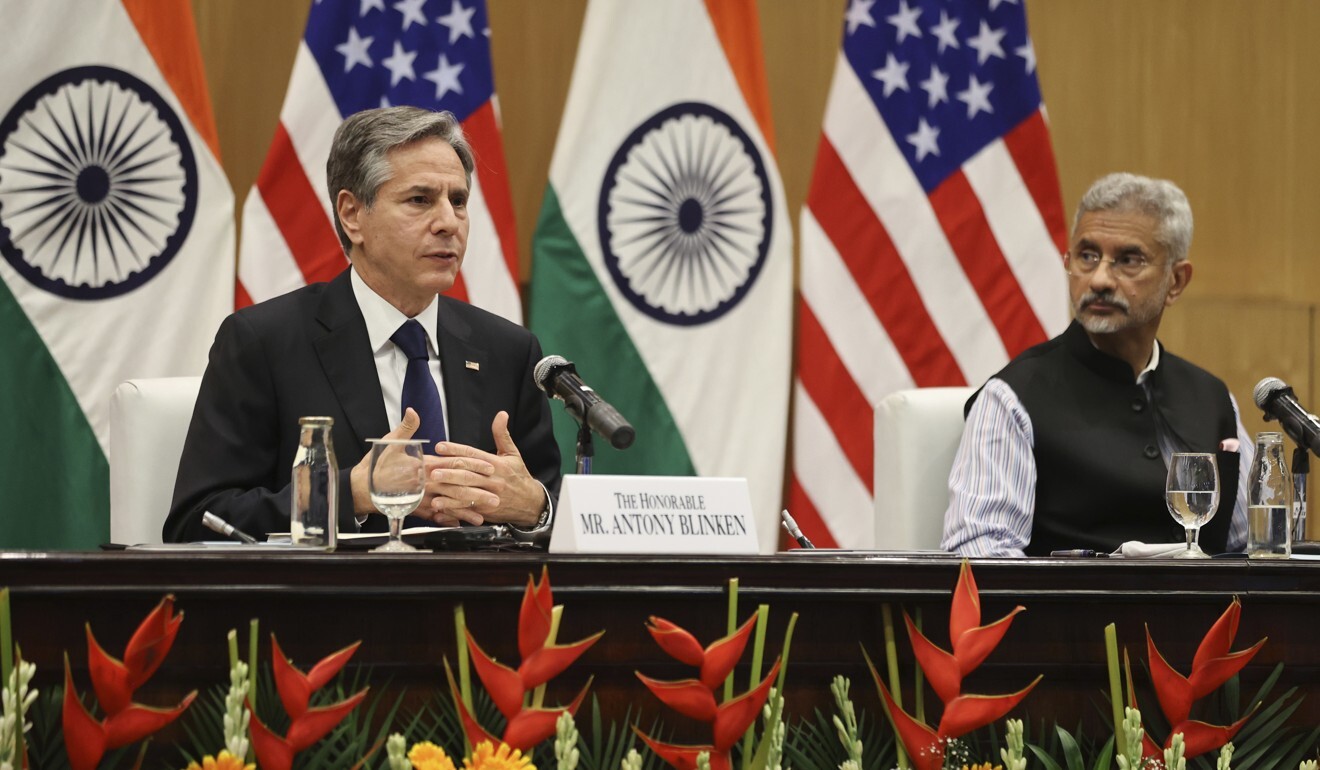
The four-country alliance is expected to hold an in-person leaders’ summit later this year.
But even as both sides affirmed their cooperation on a range of issues, Blinken also issued a veiled warning about Indian democracy backsliding, telling the civil society groups that the US and India were “connected by shared values” such as rule of law and freedom of religion.
“We believe that all people deserve to have a voice in their government and be treated with respect, no matter who they are,” Blinken said.
Under Modi, India has made growing use of anti-terrorism legislation and “sedition” laws to arrest campaigners, journalists, students and others, critics say. The Hindu nationalist administration has also brought in legislation that detractors say discriminates against India’s 170-million-strong Muslim minority.
Additional reporting by Reuters and Agence France-Presse

